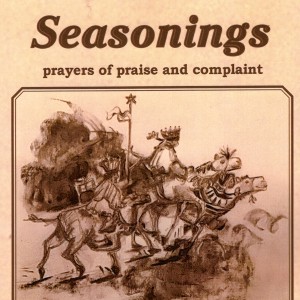Faith Matters: What it means to be a Baptist
| Published: 02-25-2018 3:26 PM |
(Each Saturday, a faith leader in Franklin County offers a personal perspective in this space. To become part of this series, email religion@recorder.com or call 413-772-0261, ext. 265.)
What’s in a name? Names are used to both identify and describe.
On a recent trip to Arizona, my wife and I visited a western fast food chain called In-N-Out Burger for the first time. Even though their menu was very basic, consisting of burgers, fries, and beverages, we had no problem with that because I had heard that their food was very good (it was) and we expected to get burgers at a place called In-N-Out Burger. Had their menu only consisted of tacos, we would have been confused and would have questioned why they didn’t call themselves In-N-Out Taco.
Not only do names mean something to restaurants, but they also mean something to churches. Though I might not know everything about a particular church that I haven’t attended, its name provides clues as to what is taught and practiced. This has historically been the case with Baptist churches. The use of the word Baptist carried with it distinctions of faith and practice that differed from the status quo of America’s religious establishment in the 1600s and 1700s. Though not every church called Baptist today accurately reflects these values — and some not called Baptist do — here are some reasons why our church identifies as Baptist.
Because we believe the Bible verse that says, “all Scripture is given by inspiration of God,” the Bible is our final authority for what we believe and how we should live.
The teaching and preaching of Scripture is the heart and soul of our church services; and we do not use the church as an entertainment center or elevate the traditions of man to the same level as Scripture. Not only does the Bible address many specific issues, but it also contains countless principles that can be applied to anything in life. The Bible tells us who God is, how we got here, how the world got messed up, how it will be made right, and many other things.
Article continues after...
Yesterday's Most Read Articles
 Greenfield man arrested in New York on murder charge
Greenfield man arrested in New York on murder charge
 Man allegedly steals $100K worth of items from Northampton, South Deerfield businesses
Man allegedly steals $100K worth of items from Northampton, South Deerfield businesses
 Greenfield Police Logs: April 9 to April 17, 2024
Greenfield Police Logs: April 9 to April 17, 2024
 Former Leyden police chief Daniel Galvis charged with larceny
Former Leyden police chief Daniel Galvis charged with larceny
 Shea Theater mural artist chosen out of 354 applicants
Shea Theater mural artist chosen out of 354 applicants
 Millers Meadow idea would ‘completely transform’ Colrain Street lot in Greenfield
Millers Meadow idea would ‘completely transform’ Colrain Street lot in Greenfield
Much of mainstream church history focuses on the hierarchal systems of various organizations and denominations; however, the pattern found in the Bible is one of independent, self-governing churches. By its biblical definition, the church is local.
Another historical Baptist distinctive regarding the church is the separation of church and state. That concept was not intended to mean that God and the Bible should be kept out of the public square but was instead meant to ensure that government would not establish one religion and oppress others. Our U.S. Constitution’s First Amendment describes that beautifully. Along with the separation of church and state comes the belief in individual soul liberty. That means every person has the God-given right to believe what they want without coercion. The Baptists who settled Rhode Island allowed Jews, Quakers and others to freely practice their beliefs and they set the example that our nation would later follow.
The original Baptists were given their name due to their practice of immersing those who were sprinkled as infants but later made personal professions of faith in Jesus Christ. The Bible teaches that every person is accountable to God for his or her own sin and needs to believe in the Lord Jesus Christ to have forgiveness of sins and peace with God. After a person believes they should be baptized, not as a means of grace or cleansing of sin, but rather as a means of public identification with Christ and the assembly that administers the baptism.
We still identify as Baptist today, not because the name Baptist determines our beliefs, but rather because our Bible-based beliefs make us Baptist.
]]>

 Speaking of Nature: Indulging in eye candy: Finally, after such a long wait, it’s beginning to look like spring is here
Speaking of Nature: Indulging in eye candy: Finally, after such a long wait, it’s beginning to look like spring is here Celebrating ‘Seasonings’: New book by veteran preacher and poet, Allen ‘Mick’ Comstock
Celebrating ‘Seasonings’: New book by veteran preacher and poet, Allen ‘Mick’ Comstock Faith Matters: How to still the muddy waters of overthinking: Clarity, peace and God can be found in the quiet spaces
Faith Matters: How to still the muddy waters of overthinking: Clarity, peace and God can be found in the quiet spaces A time for every purpose under heaven: Free sing-a-long Pete Seeger Fest returns to Ashfield, April 6
A time for every purpose under heaven: Free sing-a-long Pete Seeger Fest returns to Ashfield, April 6
